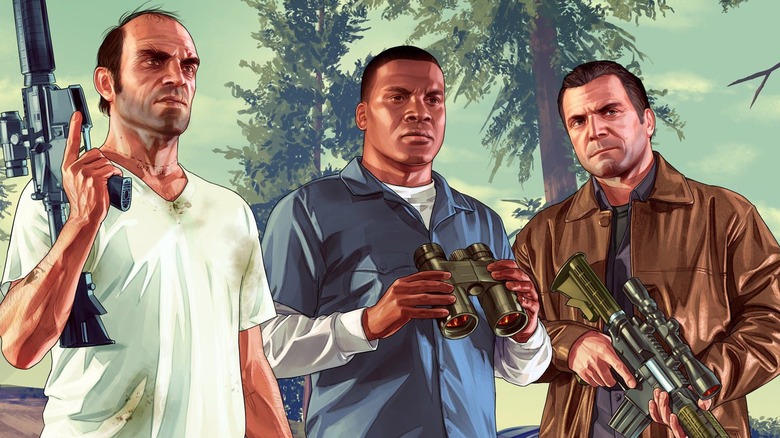The APA Breaks Its Silence On Video Game Violence
The American Psychological Association has continued to look into the effects of violent video games on players' behavior over the last several years. The APA have maintained in the past that there is a lack of evidence suggesting that video games can cause people to become outwardly violent. However, back in 2015, the APA looked into revising its previous statements in light of a rash of school shootings and other violent incidents.
This week, the APA published its latest findings in a new resolution, and it's fairly similar to the findings from previous studies. "There is insufficient scientific evidence to support a causal link between violent video games and violent behavior," says the APA official website.
According to APA President President Sandra L. Shullman, PhD, "Violence is a complex social problem that likely stems from many factors that warrant attention from researchers, policymakers and the public. Attributing violence to video gaming is not scientifically sound and draws attention away from other factors, such as a history of violence, which we know from the research is a major predictor of future violence."
In other words, it is the opinion of the APA that people who fear the effects of video games on human behavior are focusing on the entirely wrong things. It should be noted, however, that the APA understands why it's such a concern. After all, in the last few decades, video games have increasingly become a part of daily life for multiple age groups.
The APA's findings are further elaborated upon in a document posted to the official site, which lays out the organization's latest resolution and where it intends to go from here in researching the issue. As the document states, "Considering the vast number of children and youth who use video games and that more than 85% of video games on the market contain some form of violence, the public has understandably been concerned about the effects that using violent video games may have on individuals, especially children and adolescents."
The APA has furthermore resolved to make a concerted effort to distribute these findings to educators and others working with children. It's important to the APA to communicate the idea that "all violence, including lethal violence, is aggression, but not all aggression is violence." Video games have been found to be an outlet for that aggression, a nonviolent escape for people.
However, the APA does feel that the ratings of games need to be updated to properly reflect the level of violence in games. In other words, despite there not being any measurable correlation between violence in video games, there are still things that young and impressionable gamers probably shouldn't be seeing. Let's face it: sometimes video games take things a bit too far.
Despite these findings, the resolution makes a point of mentioning that there are still gaps within the APA's research, gaps that the organization hopes to be able to fill in with additional time and funding. These included whether or not males or females were more susceptible to negative outcomes from violent video games and whether or not the genre of the games played had any effect on how the game was perceived by players.
Still, with this being such a hot button issue to this day, it's reassuring to know that the science behind it is being looked into. Last year, President Donald Trump pointed to violence in video games as a cause for a series of mass shootings. This drew the ire of several high profile gamers, including superstar streamer Tyler "Ninja" Blevins, who told TMZ at the time, "Come on, man. Have you seen Minecraft? What's violent about Minecraft, bro? Nothing, man." He further added, "Violence is not video games. Just how it is, man."
Likewise, Villanova University psychology professor Patrick Markey has likened the consumption of violent video games to the effects that any other type of entertainment would have on a person. According to Markey, "The general story is people who play video games right after might be a little hopped up and jerky but it doesn't fundamentally alter who they are. It is like going to see a sad movie. It might make you cry but it doesn't make you clinically depressed."
Despite this sentiment being shared by other gamers, researchers, and the APA, the stigma against video games persists. In fact, several games have been banned in the USA over the years due to their levels of violence. Hopefully the APA can continue this research and settle the issues in a definitive way.

